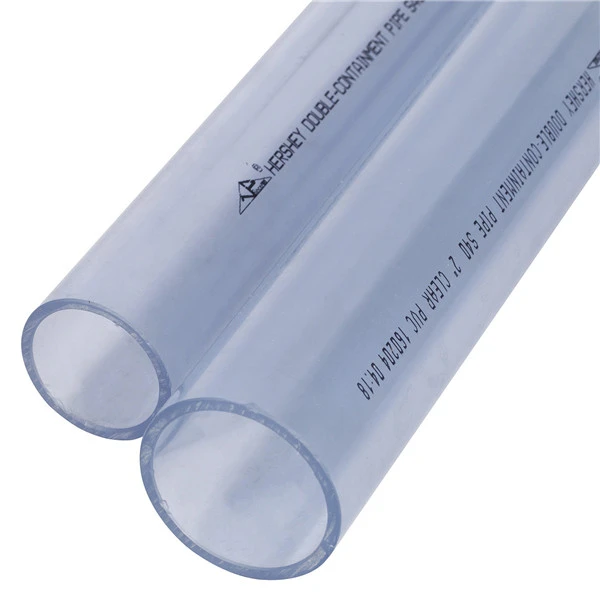des. . 04, 2024 16:04 Back to list
Applications and Benefits of Perforated PVC Pipe in Drainage Systems
Understanding Perforated PVC Pipe Applications, Benefits, and Considerations
Perforated PVC pipe is an essential component in numerous drainage, irrigation, and wastewater management systems. Made from high-quality polyvinyl chloride (PVC), these pipes feature a series of small holes or slots that allow water and other fluids to flow in and out while maintaining structural integrity. Understanding the various aspects of perforated PVC pipe can help in selecting the right materials for specific applications, ensuring effective fluid management and environmental sustainability.
What is Perforated PVC Pipe?
Perforated PVC pipes are plastic pipes that have intentionally placed perforations along their length. These perforations enable water to seep into or drain out of the pipe, making them ideal for various applications in both residential and commercial settings. Typically used as an alternative to traditional drainage systems, perforated PVC pipes can be utilized in projects ranging from agricultural fields to urban landscaping.
Applications of Perforated PVC Pipe
1. Drainage Systems One of the primary uses of perforated PVC pipes is in drainage systems. They effectively remove excess water from areas prone to flooding or waterlogging, such as basements, gardens, and agricultural lands. When buried in gravel or surrounded by porous materials, these pipes facilitate efficient water drainage while minimizing soil erosion.
2. Sump Pumps In conjunction with sump pumps, perforated PVC pipes are employed to direct groundwater and prevent flooding in basements. By managing water levels efficiently, they protect structures and provide peace of mind for homeowners.
3. Irrigation Farmers and landscapers often use perforated PVC pipes for irrigation systems. The perforations allow for the gradual release of water into the soil, promoting healthy plant growth while conserving water resources. This method, known as subsurface irrigation, helps deliver moisture directly to the root zone of plants.
4. Leach Fields In septic systems, perforated PVC pipes are utilized as leaching lines. They facilitate the even distribution of effluent into the leach field, allowing for proper filtration and absorption into the ground without clogging.
5. Construction During construction projects, perforated PVC pipes are increasingly being used for creating drainage layers around foundations and retaining walls. This helps manage groundwater levels and prevent structural damage.
Benefits of Perforated PVC Pipe
1. Durability PVC is inherently resistant to corrosion, chemicals, and biological growth, making perforated PVC pipes an attractive option for long-term use in challenging environments.
perforated pvc pipe

2. Lightweight and Flexible Unlike traditional metal pipes, PVC pipes are lightweight and easier to handle. They can be cut and shaped to fit various installation requirements without the need for heavy machinery.
3. Cost-Effective The low cost of materials and ease of installation contribute to the overall affordability of perforated PVC pipes, making them an economical choice for drainage and irrigation projects.
4. Low Maintenance Perforated PVC pipes require minimal maintenance compared to other materials. Their smooth interior prevents blockages, ensuring efficient fluid flow for extended periods.
Considerations When Using Perforated PVC Pipe
When considering the use of perforated PVC pipes, it’s essential to recognize some factors
1. Soil Type The effectiveness of a perforated PVC pipe in a drainage system is heavily influenced by the surrounding soil characteristics. Sandy soils typically drain better than clay soils, which may require additional planning for effectiveness.
2. Pipe Sizing Proper dimensioning is crucial for ensuring efficient fluid movement. The size of the pipe and the number of perforations must be tailored to specific project needs and flow rates.
3. Installation Method Adequate installation practices are vital for the longevity of perforated PVC pipes. It is essential to place the pipes at the right depth and ensure they are surrounded by gravel or suitable backfill material for optimal performance.
4. Regulations Familiarizing oneself with local regulations related to drainage, irrigation, and wastewater management is critical to ensure compliance and prevent environmental issues.
Conclusion
Perforated PVC pipes have carved out a significant niche in both agricultural and urban applications, providing reliable solutions for drainage, irrigation, and wastewater management. Their durability, cost-effectiveness, and low maintenance make them an ideal choice for various construction and environmental projects. By understanding their uses and benefits, individuals and businesses can make informed choices that promote effective fluid management and environmental sustainability.
-
Durable PVC-M Water Supply Pipes | 60-Year Life
NewsAug.04,2025
-
Premium HDPE Water Supply Pipes: Durable & Leak-Proof
NewsAug.03,2025
-
Premium PVC-M Water Supply Pipe - Durable & Efficient
NewsAug.02,2025
-
Premium PP Welding Rod: GPT-4 Turbo Enhanced
NewsAug.01,2025
-
HDPE Drainage & Irrigation Pipe - Durable, Efficient Solutions
NewsAug.01,2025
-
Premium PVC Transparent Pipe: Durable & Clear Solutions
NewsJul.31,2025

